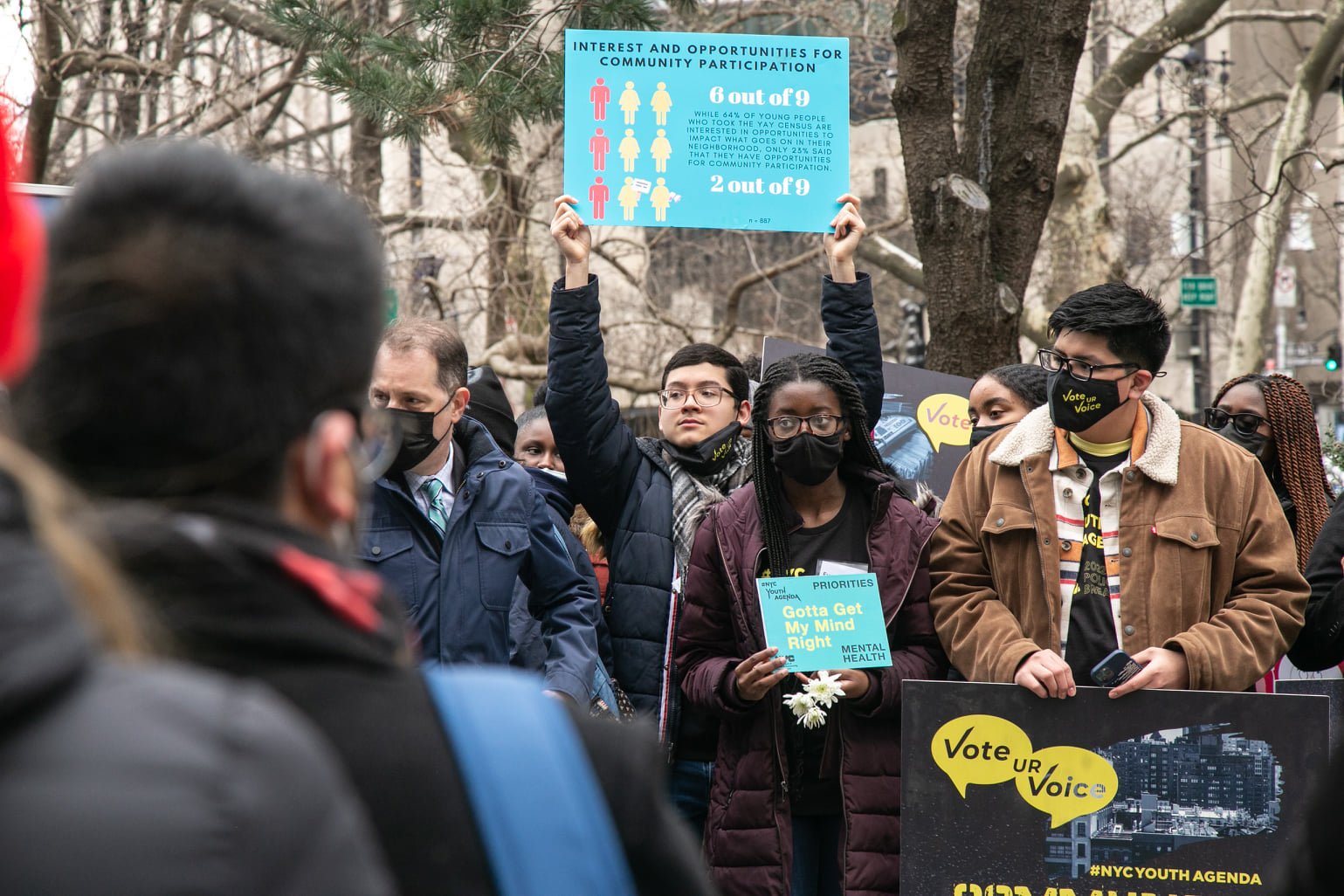Queens teens present policies to mayor
/Dozens of students, advocates and elected officials rallied to garner support for the Youth Agenda on Thursday, Feb. 24, 2022. Photo Courtesy of Committee
By Rachel Vick
Dozens of youth advocates from across Queens and New York City gathered Wednesday to call on officials to support a number of legislative proposals they say will fortify their future.
The young activists unveiled the Youth Agenda, created after surveying 3,000 of their peers, at a policy breakfast with city officials including Mayor Eric Adams and the city’s borough presidents. The agenda outlines five recommendations to allocate funding to support youth mental, physical and emotional wellbeing in New York City.
The Youth Agenda Steering Committee found that through support of housing security, food justice, mental health, economic mobility and leadership and civic engagement, the city’s teens will be equipped for a successful future.
They said the mass transition in city leadership “marks a tremendous opportunity for making NYC the most youth-friendly, youth-forward city In the country.”
“We, the youth of New York City, are eager to work with policymakers to bring about transformation and to demonstrate the power and potential of youth-adult partnerships,” they wrote.
Of the students surveyed, 94 percent of those experiencing homelessnes were Black or Latinx. Nearly half said they recently experienced food insecurity and a majority said they had anxiety that made it difficult to participate both in school and out of school.
According to the report, increasing employment and financial literacy would promote economic security. Expanding mental health services through social and emotional learning while facilitating an environment where students feel safe on their terms would support long term health.
They also found that food and housing insecurity disproportionately affected students of color, creating a drastic impact on their ability to participate in school, extracurriculars and social activities.
The tenet of civic engagement and leadership outlined the value of expanded funding to develop avenues for outreach as young people transition into members of the voting public. They also suggest expanding interaction between youth liaisons on community boards.
Though 63 percent of students surveyed said they were interested in getting involved, only a fraction felt they had the opportunity to do so.
“Change cannot be achieved by being complacent,” said Tashmira Joseph, a 17-year-old advocate from Queens. “Civic engagement is the first step in any kind of progressiveness. Post on social media, blog, tell-a-friend, show up at a rally – it doesn’t matter. Be the change you want to see.”
“It’s your responsibility to make the first move.” Joseph added. “How can you complain if you yourself are not willing to take the initiative? Civic engagement has the potential to empower young adults and it is up to us to act.”
Their requests and perspective were welcomed by the elected officials, including Comptroller Brad Lander and Queens Borough President Donovan Richards.
"We must give our youth the tools they need to become well-rounded individuals and future leaders of New York City," Richards said. “We start doing that by listening to their voices and connecting them with the services they need…When we empower our youth, we change New York City for the better.”




